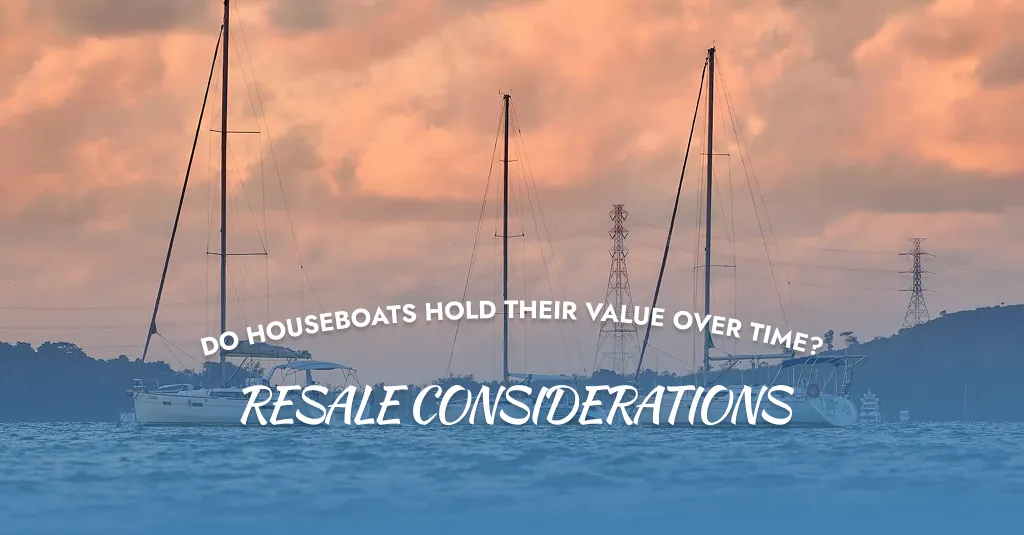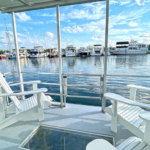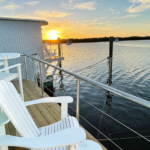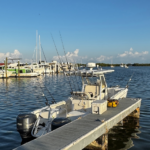
Do Houseboats Hold Their Value Over Time? Resale Considerations
Buying a houseboat can be a dream come true life on the water, a unique lifestyle, and often a beautiful escape from city life. But while the lifestyle is appealing, many potential buyers wonder: Do houseboats hold their value over time?
This is a smart and essential question to ask, especially if you’re thinking about investing in a houseboat or planning for a future resale. Like any large asset homes, RVs, or cars houseboats are subject to market forces, depreciation, and owner care.
In this blog, we’ll dive into the key factors that affect a houseboat’s value, how depreciation works, resale considerations, and tips to protect your investment.
Understanding Houseboat Depreciation
Do houseboats hold their value Like Cars?
Yes, houseboats depreciate over time, much like cars and RVs. Unlike traditional homes, which often appreciate in value, houseboats tend to lose value over the years especially if they are not well maintained.
However, depreciation isn’t linear and depends on several factors, including:
-
Age and condition of the boat.
-
Brand and build quality.
-
Engine type and hours.
-
Location and mooring options.
-
Market demand.
-
Maintenance history.
Typical Depreciation Timeline
-
Year 1-5: Highest depreciation. A new houseboat can lose up to 20-30% of its value during the first 5 years.
-
Year 6-10: Value stabilizes slightly but continues to decline.
-
10+ years: Depreciation slows, especially for well-maintained models with modern upgrades.
Key Factors That Affect Houseboat Resale Value
Understanding what impacts a houseboat’s value is essential if you’re planning to sell in the future or just want to make a smart purchase.
1. Construction Quality & Materials
Houseboats built with high-quality materials like fiberglass or aluminum tend to last longer and hold their value better than those built with wood or lower-grade materials.
2. Maintenance & Upkeep
Just like traditional homes or cars, regular maintenance is crucial. A well-documented maintenance history can significantly improve resale value.
Common upkeep includes:
-
Hull inspections.
-
Engine servicing.
-
Electrical and plumbing systems.
-
Interior upgrades.
3. Engine Type and Hours
Motorized houseboats come with inboard or outboard engines. Buyers often ask:
-
How many hours are on the engine?
-
When was it last serviced?
-
Is it fuel-efficient?
Engines that are well-maintained and under 1,000 hours of use tend to retain better value.
4. Location and Mooring
Where your houseboat is located plays a big role in its resale potential. Popular houseboating destinations like Lake Powell, Lake Cumberland, or the Murray River often see higher demand.
Access to secure mooring, marina amenities, and desirable docking locations adds significant value.
5. Market Trends and Buyer Demand
The houseboat market fluctuates with trends in vacationing, minimalistic living, and remote work. During the COVID-19 pandemic, for example, houseboat sales surged as people looked for safe, isolated getaways.
Being aware of these trends helps you buy low and sell high.
Do New or Used Houseboats Hold Value Better?
Buying new means immediate depreciation, but you also get the benefit of warranties and no prior wear. Buying used might give you better value if the boat has been well-maintained.
New Houseboats
-
Pros: Warranty, new systems, no hidden issues.
-
Cons: Higher upfront cost, faster depreciation.
Used Houseboats
-
Pros: Lower initial cost, depreciation curve has slowed.
-
Cons: Higher risk of maintenance needs, fewer upgrades.
Pro Tip: Buying a 3–5-year-old houseboat often gives you the best value balance between age and condition.
How to Protect Your Houseboat’s Resale Value
If you want your investment to go the distance, there are smart things you can do to preserve and even increase its resale value.
1. Keep Up With Maintenance
Keep detailed logs of services, upgrades, and inspections. A clean record builds trust with potential buyers.
2. Upgrade Smartly
Focus on improvements that offer a high ROI like:
-
Solar panels.
-
Modern kitchen or bathroom appliances.
-
Air conditioning units.
-
Efficient battery and water systems.
3. Protect the Exterior
Use boat covers, antifouling paints, and weatherproofing materials to keep your boat looking and functioning like new.
4. Stage Before You Sell
Like any real estate sale, presentation matters. Clean, declutter, and stage your houseboat for photos and walkthroughs.
What Are Buyers Looking for in a Used Houseboat?
If you plan to sell your houseboat in the future, it helps to know what buyers typically look for:
-
Low engine hours.
-
Updated interiors.
-
Energy-efficient systems.
-
Ample deck space.
-
Functional plumbing and electrical.
-
Storage space.
If you can meet or exceed these expectations, your resale value will reflect that.
Financing and Insurance: Impact on Resale
Some buyers use marine loans to purchase houseboats, which may affect resale price ranges and interest. Additionally, having proper insurance coverage can save a lot of money in case of unexpected damage, which in turn protects resale value.
Houseboat vs. Traditional Property: Value Comparison
Unlike traditional real estate, houseboats:
-
Don’t appreciate in value.
-
Aren’t tied to land ownership.
-
Can be moved (or relocated for better value).
However, they also come with lower property taxes, cheaper utility bills, and no land-based HOA fees. So even if they depreciate, they can still be financially efficient over time.
Is a Houseboat a Good Investment?
If you’re buying a houseboat strictly for appreciation, it’s not the best financial choice. But if you consider the lifestyle value, rental income potential, and personal enjoyment, it becomes a much more well-rounded investment.
Some houseboat owners even earn passive income by renting out their boats on Airbnb or vacation rental sites.
In the strictest financial sense, houseboats don’t hold their value as well as traditional homes, but that doesn’t mean they’re not worth it.
A well-maintained houseboat in a good location, with updated features and smart ownership, can maintain a strong resale price especially in high-demand areas.
So, if you’re in it for the lifestyle and are proactive about maintenance and upgrades, a houseboat can still be a rewarding long-term investment.
Frequently Asked Questions (FAQs)
How fast does a houseboat lose value?
In the first 5 years, a houseboat may lose 20-30% of its value. After that, depreciation slows if the boat is well cared for.
Do luxury houseboats hold value better?
Yes, luxury models with premium features tend to retain value longer, especially in high-demand markets.
Can I make money renting out my houseboat?
Absolutely! Many owners earn passive income by renting out their houseboats on platforms like Airbnb or VRBO.
What is the average lifespan of a houseboat?
With proper care, a houseboat can last 25-50 years. The hull material, engine type, and maintenance all impact lifespan.
Are older houseboats harder to sell?
Not necessarily. Older houseboats with modern upgrades and good maintenance history can still attract strong buyer interest.





